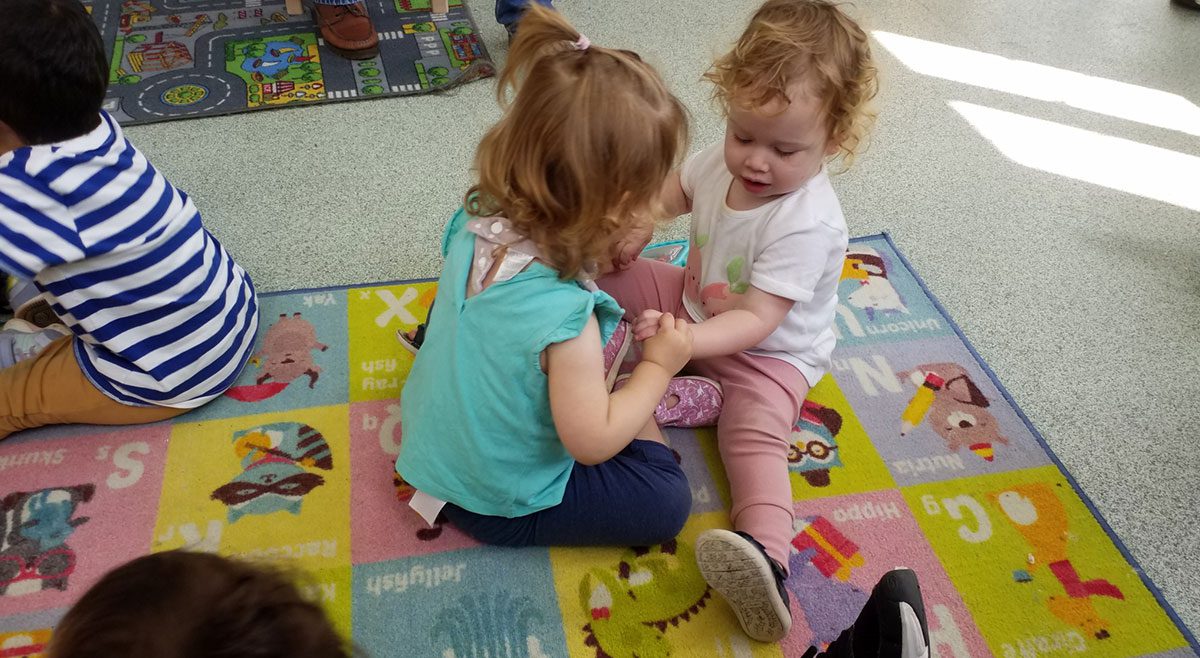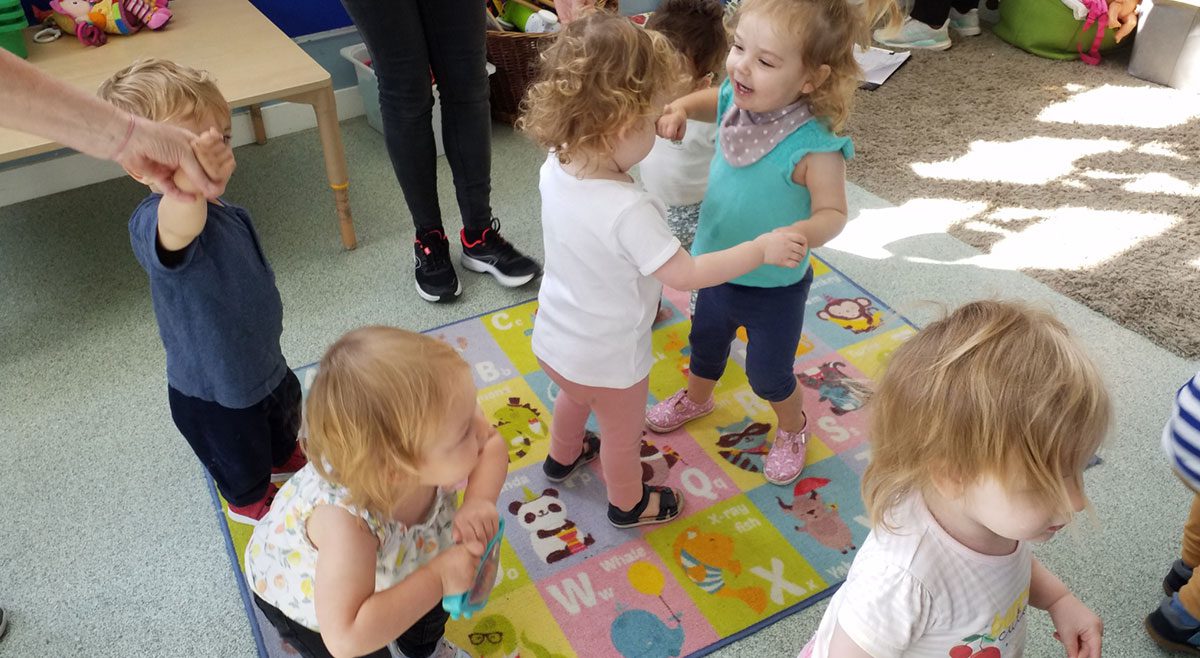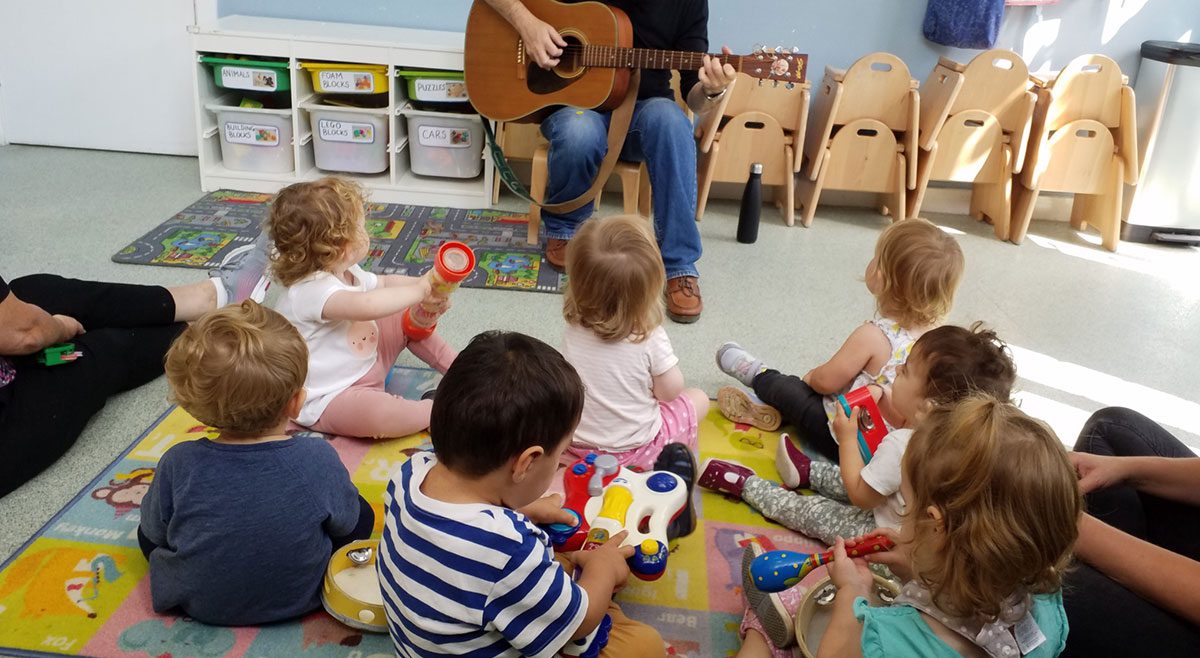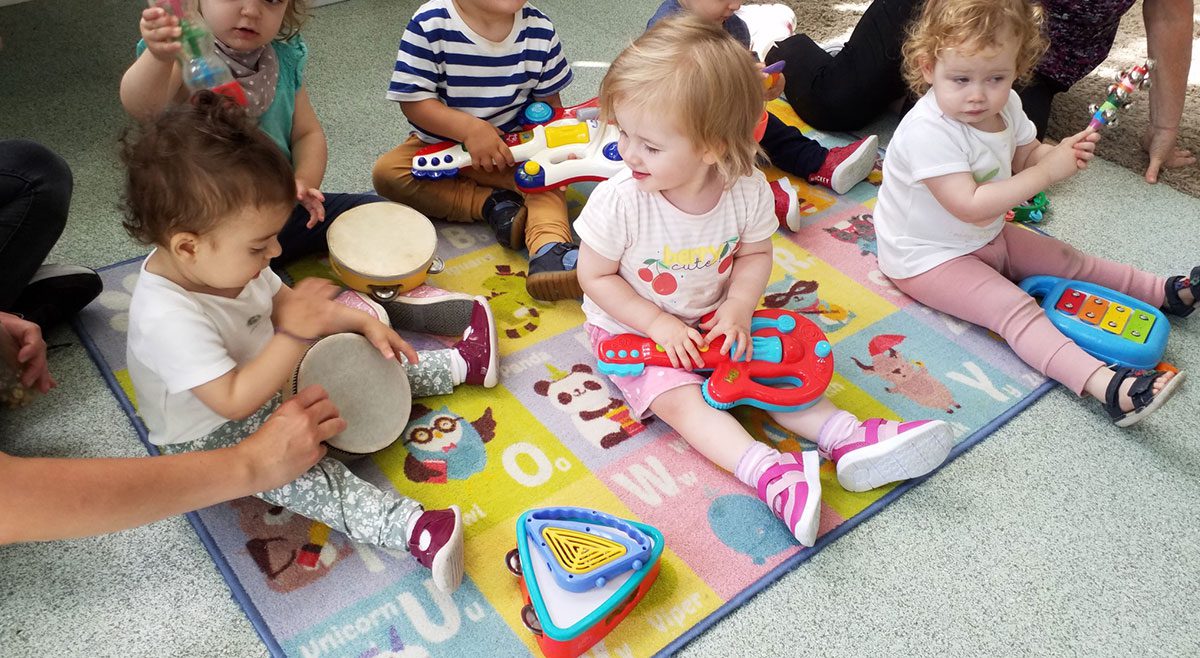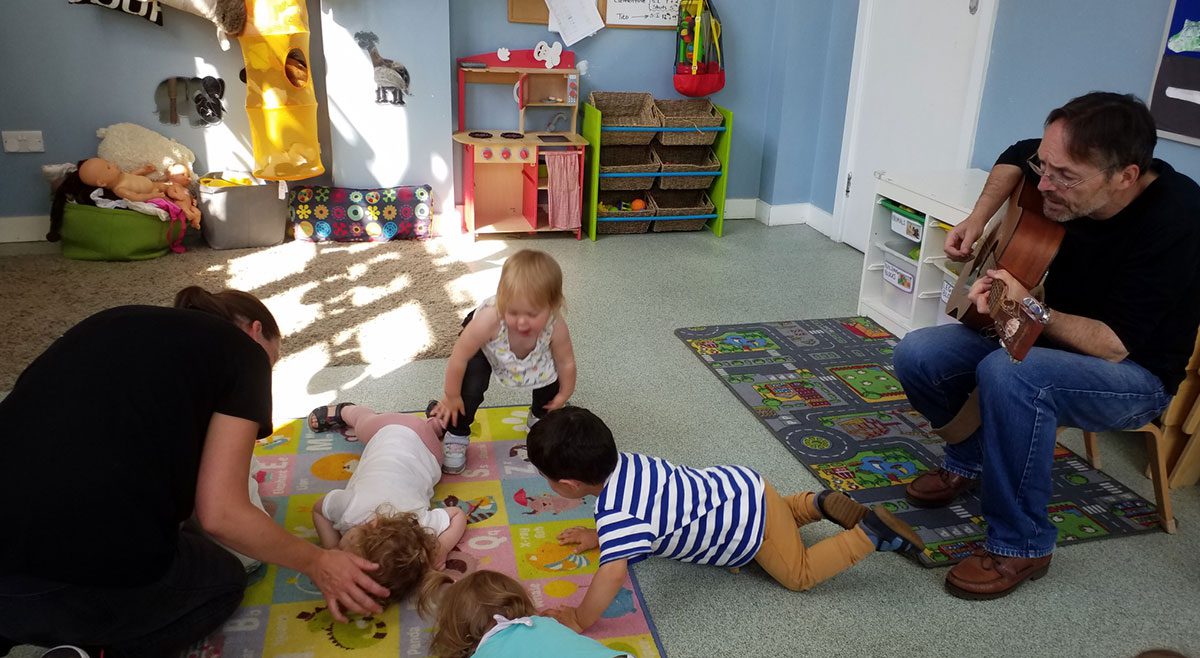Sensory development
It has long been known that music can have a profound effect on our mood and emotions. Now, new research is revealing that music can also have a positive impact on cognitive function, sensory development, and even stress levels.
One study found that babies who were exposed to music and dance showed improved cognitive function and increased levels of serotonin, the “feel-good” hormone. The researchers believe that this is because music promotes sensory development by stimulating the brain’s auditory and visual systems. In addition, the movement involved in dancing helps to promote gross motor skills and coordination.
Music has a way of lifting our spirits and putting us in a good mood. We are lucky at our Hammersmith nursery to have Malcolm as our music teacher. Malcolm visits us twice a week to teach us new songs and rhythms on the keyboard and guitar! The children always look forward to these lessons, as they help them to relax and enjoy some quality time making music with friends.
Literacy & Numeracy
According to a growing body of research, listening to music can have a positive impact on literacy and numeracy skills. One study found that students who listened to music while working on math problems showed improved performance. Additionally, research suggests that music can help to increase reading fluency. In one experiment, students who read aloud while listening to music showed greater improvements in reading speed and accuracy than those who read in silence. The beneficial effects of music are believed to be because it can modulate brain activity and improve cognitive function. Additionally, music has been shown to boost mood and reduce stress levels, both of which can improve learning and performance.
Willows Hammersmith Nursery as well as both Wimbledon and Colliers Wood nurseries understand that Nursery rhymes are more than just child’s play. Studies have shown that singing nursery rhymes with children can help them to develop important language skills. The rhythmic nature of nursery rhymes helps children to recognise and repeat sound patterns, which is a valuable pre-reading skill. In addition, the use of music can help babies to anticipate what will come next in a poem, story, or song. This teaches them how to sequence familiar patterns, which is an important foundation for reading and numeracy. Nursery rhymes are a great way to promote a child’s cognitive development – so break out into song and enjoy some quality bonding time with your little one!
Music develops coordination
As the poet John Dryden so eloquently put it, “dancing is the poetry of the foot”. At its best, dancing is an expression of the joy of life, a way to connect with others and a celebration of the human body in all its beauty and grace.
But dancing also has a serious side, it is a great way to develop fine and gross motor skills, as well as coordination. At Willows Hammersmith nursery we use dancing across all age groups, from babies to pre-schoolers, to help them develop these important skills. In addition, dance has been shown to improve cognitive function and increase serotonin levels, which can lead to a better mood and less stress.
By coordinating their movements to the music, children help improve their coordination. Additionally, dancing is a great way to get children moving and active. It gets their heart rate up and helps them to burn off excess energy. And since it’s such a fun activity, it can help put children in a good mood and improve their cognitive function. So the next time you hear some music, don’t just sit there – get up and dance! And thanks to John Dryden for reminding us that “dancing is the poetry of the foot”!
Music helps with vocabulary
Music has been shown to have several benefits for toddlers. In addition to facilitating the development of fine motor skills, gross motor skills, coordination and cognitive function as discussed above, recent studies have shown that music can also help toddlers develop their vocabulary. In one study, toddlers who were exposed to music showed an increased ability to identify words. Furthermore, the more exposure the toddlers had to music, the greater the benefit they derived.
When children are first learning to talk, they often mispronounce words or string together a series of sounds that don’t form a word. For example, many kids will take the ABC song as an example and think the sequence “l-m-n-o-p” is the word “elemenopee”. As they grow and begin to understand how language works, they realize that it is not a word but a series of sounds, each sound a separate concept. This process of learning how to correctly produce speech sounds is called phonemic awareness. It’s an important skill for developing fine motor skills, gross motor skills, coordination, and of course vocabulary.
So, if you’re looking for a way to give your toddler a head start, consider exposing them to some tunes. Who knows, they might just thank you for it later!
